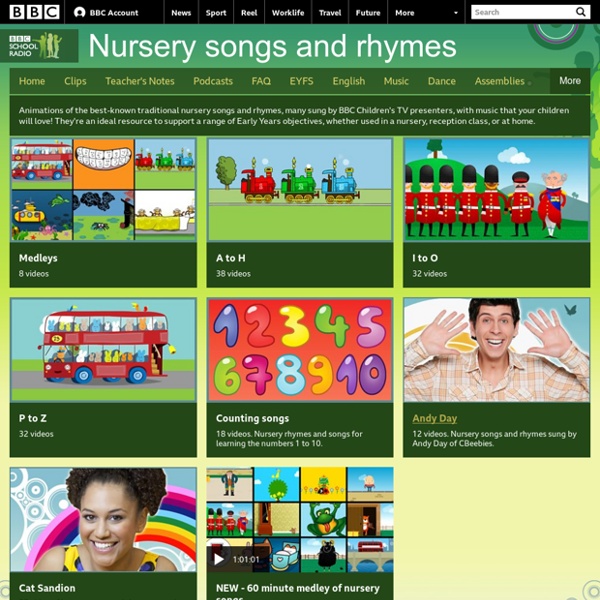



https://www.bbc.co.uk/programmes/p06kbsbz
Related: almudenagomarr • English in early childhood • natashabrova • English in early childhood • Early yearsOxford Owl from Oxford University Press Learning to read – and to love to read – is directly linked to children's success at school and beyond. Find out how children learn to read with phonics, and how you can help your child's reading at home. KS2 SATs: Reading test Help your child prepare for the Year 6 reading test. KS2 SATs: Reading test > Free eBook library Whole Child Development Is Undervalued The question is how to make such an approach both systemic and sustainable. Whole Person Socio-emotional, physical, creative, and cognitive capacities are deeply intertwined and equally important in ensuring a child's wellbeing, learning, and growth. (That shouldn't be a surprise to anyone studying or supporting children's learning.) Nobel laureate James Heckman, a professor of economics at the University of Chicago, has shown that the non-cognitive skills emerging in early childhood are among the strongest predictors of adult outcomes.
How to teach children English using illustrated storybooks What makes illustrated storybooks such a good resource for teaching young learners of English? The British Council’s Gail Ellis, co-author of a storytelling handbook for primary English language teachers, explains. Listen to an interview with Gail in our podcast and register for her webinar taking place on Thursday, 2 October. Illustrated storybooks provide an ideal resource for helping children learn English. This is because children love listening to stories.
Practical tips By Opal Dunn, educational consultant and author Introduction Young children learn English differently from most adults. Most have an innate ability to pick up English while taking part in activities, by making sense of what they are doing and picking up the adult’s language that accompanies the activity. You can find out more in the British Council booklet ‘How young children learn English as another language’, also available on the parents pages of the LearnEnglish Kids website.
The Art of Control Executive function — our ability to remember and use what we know, defeat our unproductive impulses, and switch gears and adjust to new demands — is increasingly understood as a key element not just of learning but of lifelong success. Researchers at the Center on the Developing Child at Harvard University describe executive function as an air traffic control system for the mind — helping us manage streams of information, revise plans, stay organized, filter out distractions, cope with stress, and make healthy decisions. Children learn these skills first from their parents, through reliable routines, meaningful and responsive interactions, and play that focuses attention and stirs the beginnings of self-control.
SPELD SA Phonic Books The books are grouped in a developing order based on the order of sounds introduced in the Jolly Phonics early literacy program, www.jollylearning.co.uk Each book is published with suggestions on how parents, tutors and teachers can get the most out of the book. SPELD SA provides phonic readers free of charge that suit a variety of ages and abilities.
Surprisingly Simple Techniques for Challenging Behaviour - Kathy Brodie Early Years Training I often get asked about children’s behaviour. It is a massive topic, with many facets. However, I would always start from the perspective that all behaviour, good or unacceptable, is a form of communication. It is how we, as practitioners and adults, respond to that communication that makes all the difference. The Webster Stratton method is a well known and widely used behaviour management strategy. Ten ways to support your child’s English-learning at home As the British Council opens a new Learning Time with Shaun & Timmy centre in Mexico for two- to six-year-olds, senior teacher Sarah Reid offers some useful tips for supporting your child’s learning at home. More and more parents want their children to learn English from a young age. I often meet parents of children as young as two or three who say that proficiency in speaking English will help their child 'get ahead in a globalised world'. In other words, the sooner their children get started, the better. The single most important factor in a child’s success with English is their parents' interest and encouragement, no matter what their child’s age.
The Power (and Peril) of Praising Your Kids What do we make of a boy like Thomas? Thomas (his middle name) is a fifth-grader at the highly competitive P.S. 334, the Anderson School on West 84th. Slim as they get, Thomas recently had his long sandy-blond hair cut short to look like the new James Bond (he took a photo of Daniel Craig to the barber). Unlike Bond, he prefers a uniform of cargo pants and a T-shirt emblazoned with a photo of one of his heroes: Frank Zappa. How to help your child learn English with YouTube videos Tracey Chapelton, education consultant and materials writer, has some advice for parents of young English learners, whose home language might not be English. To learn a language we need a lot of exposure to it. YouTube is beneficial if you are not a fluent English speaker, and want a more fluent model of English for your child. Helped along by the visuals of their favourite cartoon, children can watch their favourite characters involved in adventures, while absorbing the language. Repetition is also important for language learning. It helps us remember important words and expressions.